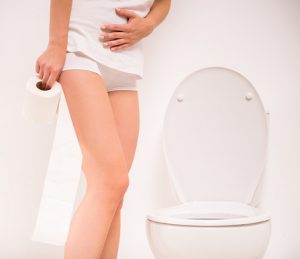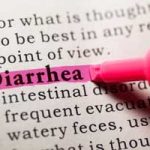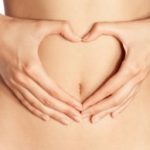 For some, diarrhea after eating is a common occurrence, which can really raise your concern. Diarrhea is not normal, and so whenever you experience diarrhea it indicates some underlying problem. Experiencing diarrhea after eating could be indicative of a serious condition that needs medical attention or a sign of a possible intolerance.
For some, diarrhea after eating is a common occurrence, which can really raise your concern. Diarrhea is not normal, and so whenever you experience diarrhea it indicates some underlying problem. Experiencing diarrhea after eating could be indicative of a serious condition that needs medical attention or a sign of a possible intolerance.
Diarrhea is described as loose, watery stool, which can occur suddenly and have you rush to the bathroom. Along with watery stool, you may also experience abdominal cramps and pain, fever, bloating, blood in stool, nausea, and vomiting, all depending on the underlying cause.
Advertisement
Here we will outline the possible causes of diarrhea after eating, so you are aware of what could be causing you such distress.
Causes of diarrhea after eating
Acute diarrhea after eating: Causes
Acute diarrhea refers to the sudden onset of diarrhea. Here are some potential causes for acute diarrhea after eating.
Viral infections: Viral infections can be contracted through contaminated food and utensils, or even passed on by another person. A common viral infection that causes acute diarrhea is Norwalk virus, cytomegalovirus, viral hepatitis, adenovirus, and calicivirus.
Bacterial infections: Similar to viral infections, but caused by bacteria instead. Common bacteria that cause acute diarrhea after eating include campylobacter, shigella, E. coli, salmonella, V. cholera, and Staphylococcus aureus.
Parasite: Parasites can be passed through contaminated food, and common parasites are cryptosporidium, giardia lamblia, and tapeworm.
Medications: Some medications can lead to acute diarrhea due to the imbalance of bacteria in the gut. When this natural balance is disturbed, the result can be diarrhea.
Fructose: Fructose is naturally found in fruit and is also added to food for sweetening. Sometimes, ingesting high amounts of fructose can result in acute diarrhea.
Artificial sweeteners: Some individuals may be sensitive to artificial sweeteners like mannitol and sorbitol – found in chewing gum and sugar-free products – which can trigger diarrhea.
Chronic diarrhea after eating: Causes
 Chronic diarrhea after eating can signal a medical condition and can occur at least once a day immediately after a meal. It’s also important to pay close attention to accompanying symptoms along with your chronic diarrhea after eating to narrow in on the potential cause. Overall, you should always see your doctor if diarrhea lasts more than three days.
Chronic diarrhea after eating can signal a medical condition and can occur at least once a day immediately after a meal. It’s also important to pay close attention to accompanying symptoms along with your chronic diarrhea after eating to narrow in on the potential cause. Overall, you should always see your doctor if diarrhea lasts more than three days.
Lactose intolerance: Those who do not have the enzyme to break down lactose are lactose intolerant. When they consume dairy products or products containing lactose, the immediate reaction is diarrhea.
Sugar intolerance: Just like how some people cannot break down lactose, others cannot break down sugars. You will know you have a sugar intolerance if diarrhea occurs after consuming a meal that contains sugars like high fructose or sorbitol.
Celiac disease: Celiac disease is a condition in which a person cannot tolerate gluten. Diarrhea is one of the symptoms here, along with abdominal pain and bloating. You may want to cut out products that contain gluten and see if your diarrhea clears up. Your doctor can also run some tests to confirm a diagnosis of celiac disease.
Bile acid malabsorption (BAM): Bile is excreted by the gallbladder to help your digestive system break down fat. If these acids are not reabsorbed properly, diarrhea can occur.
Inflammatory bowel disease (IBD): Crohn’s disease and ulcerative colitis are two forms of IBD. Diarrhea after eating is a common symptom of both conditions and you may notice blood in your stool as well.
Gallbladder removal: If you have had your gallbladder removed, your regulation of bile may be disrupted, which can be similar to BAM.
Dumping syndrome: This is more common in patients who underwent bariatric surgery. In dumping syndrome, there is rapid gastric emptying, meaning, the stomach empties into the small intestine too quickly. Certain meals then can trigger diarrhea after eating.
Microscopic colitis: This type of colitis differs from ulcerative colitis. In this form, inflammation occurs in the lining of the cells and can only be seen under a microscope.
Treatment and home remedies for diarrhea after eating
Whenever you experience bouts of diarrhea, especially if it spans over several days, you should report such symptom to your doctor. Further testing may be required in order to determine the cause of your diarrhea after eating.
For some causes of diarrhea after eating, antibiotics can be prescribed to fight off bacteria or you can take antidiarrheal medication like Imodium. Take note that if you are taking Imodium-like products daily, you could have a serious cause for diarrhea and should have yourself checked out.
Home remedies for diarrhea after eating

There are some things you can do for diarrhea relief. Here are some home remedies to help you combat it in the comfort of your home.
- Keep hydrated to prevent dehydration.
- Consider taking a probiotic daily to restore good bacteria in the gut.
- Avoid eating foods that can worsen diarrhea (we will outline these foods further down) and stick to a bland diet consisting of applesauce, toast, rice, etc.
- Eat safely – ensure food is being well stored and properly handled to avoid contamination. Always wash your hands prior to food preparation and do not handle food if you are sick.
- Eat smaller meals throughout the day instead of larger ones.
- Be mindful of dairy or gluten products.
Foods that can cause diarrhea
Advertisement
As mentioned, some foods can cause diarrhea and others can worsen it. Although each person is different, here are some common foods that can trigger diarrhea.
- Milk and dairy products
- Hot peppers
- Caffeine
- Artificial fat
- Sugar substitutes and high sugar foods
When to see a doctor for diarrhea after eating
 You should always see a doctor in case of diarrhea if it lasts for several days, or is accompanied by a high fever. If you experience severe abdominal pain, pass black or bloody stool, or if you become dehydrated, you should immediately seek out a doctor or hospital.
You should always see a doctor in case of diarrhea if it lasts for several days, or is accompanied by a high fever. If you experience severe abdominal pain, pass black or bloody stool, or if you become dehydrated, you should immediately seek out a doctor or hospital.
Symptoms of dehydration include dry mouth or skin, excessive thirst, severe weakness, dizziness or lightheadedness, and little to no urination.
